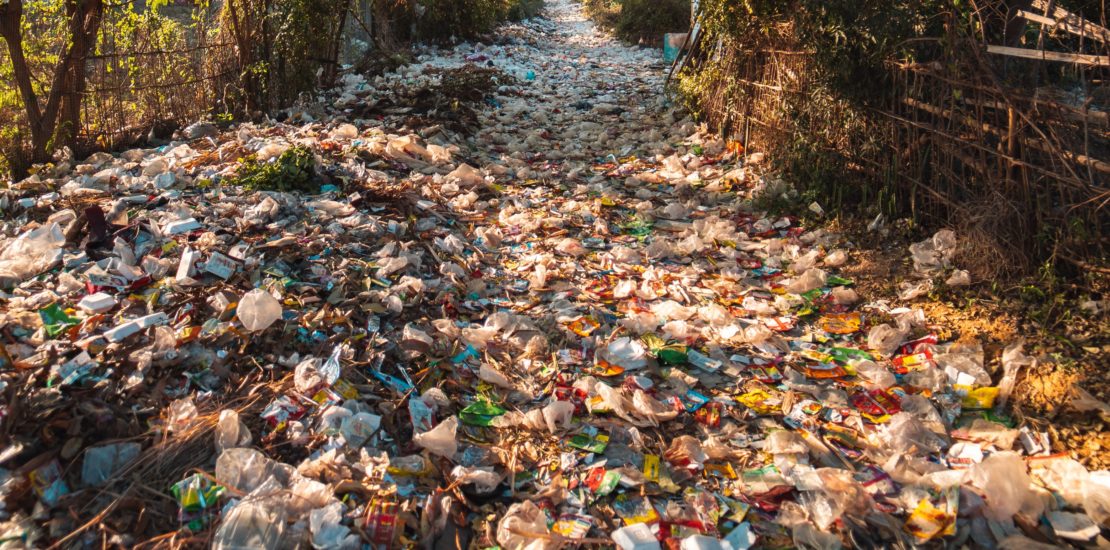Effect Of Plastic Pollution On The Ecosystem
- July 13, 2016
- Posted by: Greenpack
- Category: Research

Plastics are utilized because they are easy and inexpensive to manufacture, strong and durable. Unfortunately these same useful qualities make plastic an overwhelming pollution problem. Inferior quality and low cost means plastic is readily discarded. Plastics take around 300 years to photo degrade. Plastics long life assures it survival in the environment for extended periods where it can do great harm. Because plastic does not easily decompose and requires high energy ultra-violet light to break down, the volume of plastic waste in the world’s oceans is steadily increasing. Plastic is now found in virtually all the oceans and rivers of the world, even the most remote and once pristine.
American oceanographer Charles Moore says the amount of plastic pollution in the world’s oceans is so extensive it’s beyond cleaning up. A toxic plastic ‘graveyard’ double the size of Texas swirls in the waters of the Pacific between San Francisco and Hawaii. There his crew found that the water contained over 40 parts of plastic for every part plankton, with a fivefold increase in the amount of plastic between 1997 and 2007.
Annually approximately 500 billion plastic bags are used worldwide. That is an unconscionable amount of waste, so much that more than one million bags are used every minute and their impact on the planet is devastating. Plastic bags are only part of the problem. America alone, yearly produces in excess of 800,000 tons of plastic bottle pollution. World-wide our precious planet is defaced and poisoned with more than 100 million tons of plastic pollution annually.
According to the California Coastal Commission, over 80% of refuse within waterways, most of it being plastic, originates on land rather than coming from boats.
Turtles are particularly devastated by plastic pollution. All seven of the world’s turtle species are already endangered or threatened for a multitude of reasons. Turtles become entangled in plastic fishing nets, and many sea turtles have been found dead with plastic garbage bags in their stomachs. Studies indicate turtles mistake these floating semi-transparent bags for jellyfish and eat them. The turtles die an inhumane death from choking or from being unable to eat. A dead turtle found off the coast Hawaii was found to have more than 1000 pieces of plastic in its stomach including part of a comb, a toy truck wheel and lank of nylon rope.
There is great environmental concern about the effect of plastic trash on all marine mammals. These elegant creatures are already under threat for a variety of other reasons: e.g. seal and whale populations have been decimated by unregulated hunting. A recent study concluded that in excess of 100,000 marine mammals die needlessly each year from the deadly effects of plastic pollution.
World-wide over 100 bird species are known to ingest plastic particles. This includes 36 species found off the coast of South Africa. A recent study of blue petrel hatchlings at South Africa’s remote Marion Island showed that 90% of the chicks examined had plastic in their digestive systems, apparently fed to them accidentally by their parents. South African seabirds are among the worst affected in the world. Plastics remain in the bird’s stomachs, impeding digestion and causing starvation.
Scientific studies are not conclusive about how much plastic birds and fish are consuming, however scientist agree that plastic in seafood is likely to be harmful for people. Plastic is compared with better understood toxic materials such as mercury.
The ingredients in plastic have been linked to cancer and reproductive abnormalities. Bisphenol A, found in plastic water bottles, has been shown to produce cancer in lab rats, to disrupt hormone levels and is associated with diabetes and obesity.
Plastic acts like a sponge when in contact with poisons such as PCBs, concentrating them at levels that are millions of time more than in seawater.
With the increase in environmental awareness, it has become obvious that there is more that we can do to create a sustainable society. If everyone of us would take a few tiny steps, make a few different choices and consciously consider our impact on the planet, there might be a way to restore the world to its original beauty and resources.